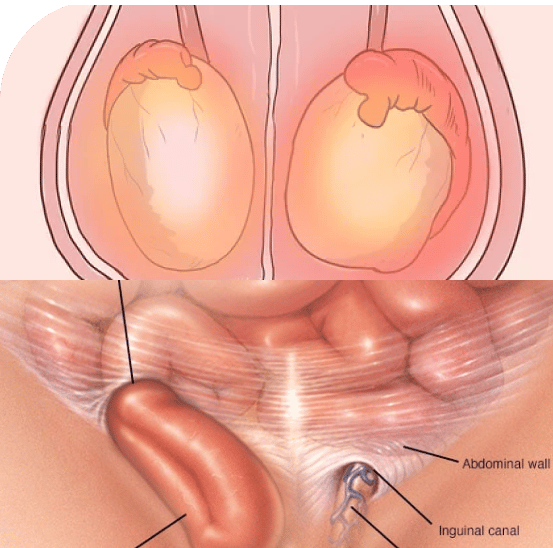Mesothelioma Symptoms
Mesothelioma is cancer that forms in the mesothelium, or membrane, of various organs, such as the lungs, heart, and digestive system. Symptoms of mesothelioma vary depending on where cancer develops. General symptoms may include unexplained weight loss, fever, night sweats, and fatigue.
Home » National Mesothelioma Law Firm » Mesothelioma Cancer » Mesothelioma Symptoms
Pleural Mesothelioma Symptoms
Malignant pleural mesothelioma develops in the pleura, which is a membrane that surrounds the lungs. Common symptoms of pleural mesothelioma include:

Dyspnea (Shortness of Breath)

Difficulty Swallowing

Swelling of the Face and/or Arms

Dry Cough

Chest Pain

Hoarseness of the Voice
Similar symptoms are common in a number of other diseases, such as pneumonia, COPD (emphysema), asthma and lung cancer.
Peritoneal Mesothelioma Symptoms
- Nausea and/or vomiting. This can result from pressure on the stomach or other parts of the digestive system, either caused by the tumors themselves or by the presence of fluid in the abdomen.
- Constipation, which can occur due to a bowel obstruction when the cancer puts pressure on the intestine and blocks the normal flow of material through it.
- Diarrhea. When tumors partially block the small intestine, solid material may get stuck while liquid material flows around the blockage. This leads to diarrhea.
- Abdominal pain. This occurs when the cancer invades tissues in the abdominal cavity and the abdominal wall.
- Swelling of the abdomen. This is usually due to ascites, which is a fluid buildup in the abdomen.

Pericardial Mesothelioma Symptoms

Pain in the Chest or Shoulder

Dyspnea (Shortness of Breath)

Trouble Swallowing

Irregular Heartbeat or Heart Palpitations

Heart Murmurs

Swelling of the Legs
Testicular Mesothelioma Symptoms
- Swelling of one testicle. This may be a hydrocele, which is a buildup of fluid in the scrotum. It may also represent thickening of the tunica vaginalis.
- A mass in the scrotum, which is usually painless.

General Symptoms of Mesothelioma
There are certain symptoms that commonly develop in the later stages of mesothelioma. These are also common in other types of cancer and are not specific to mesothelioma. These symptoms include:

Unexplained Weight Loss

Fever

Night Sweats

Loss of Appetite

Fatigue
Challenges in Evaluating Mesothelioma Symptoms
Because many of the symptoms and signs of mesothelioma are nonspecific, the process of mesothelioma diagnosis may be delayed, or may even result in a misdiagnosis.
For example, for peritoneal mesothelioma patients, it takes an average of four to six months between the onset of symptoms and the diagnosis. For rare types of mesothelioma, such as pericardial mesothelioma, it’s not uncommon for the diagnosis to be made after the patient’s death. Imaging studies, a biopsy and sometimes blood tests are needed to determine that mesothelioma is the cause of the patient’s symptoms.
Early detection of mesothelioma leads to better outcomes, because when mesothelioma is diagnosed at an early stage, there are more treatment options. Patients who have risk factors for this cancer (such as a history of asbestos exposure) should be vigilant in watching for possible mesothelioma signs and should mention these to their doctor as soon as possible. This increases the likelihood that diagnosis will be made at an early stage.


Side Effects of Mesothelioma Treatment
Besides the symptoms created by the cancer itself, mesothelioma patients may also have side effects related to their treatments. For some patients, the treatment plan is intended to eliminate as much of the cancer as possible in order to extend their lives. Many of the treatments that are used to do this have significant side effects, some of which are similar to symptoms caused by the cancer itself.
For example, the chemotherapy agents commonly used for mesothelioma cause diarrhea, nausea and vomiting, loss of appetite, anemia and pain. They can also cause other side effects such as hair loss, muscle weakness, hearing loss and immune system damage (leading to frequent infections).
Managing Mesothelioma Symptoms
Some mesothelioma patients are treated only with palliative care, which is focused on managing symptoms to improve quality of life, rather than focusing on the length of life. Even for those who are receiving aggressive treatments intended to prolong life, symptom control is an important part of a mesothelioma treatment plan.
A variety of treatments may be used to manage the symptoms of mesothelioma, such as:

Surgical Procedures
Surgical procedures for mesothelioma that aim to drain excess fluid from the chest or abdomen can be helpful in relieving symptoms. In some cases, palliative surgery may be performed to remove a tumor that’s creating significant symptoms, without the intent to remove all of the cancer.

Chemotherapy or Radiation Therapy
Although these are commonly part of a treatment plan that’s focused on cure, they can also be used for palliative care to help shrink tumors that are causing symptoms.

Medications

Complementary Therapies
It’s important to discuss everything that you’re doing with your mesothelioma treatment team to ensure that it won’t interfere with your conventional medical treatment.
However, oncology experts generally encourage the use of complementary therapies like these to help patients with symptom control.
By submitting this form, you agree to our terms & conditions. Please read the full disclaimer



